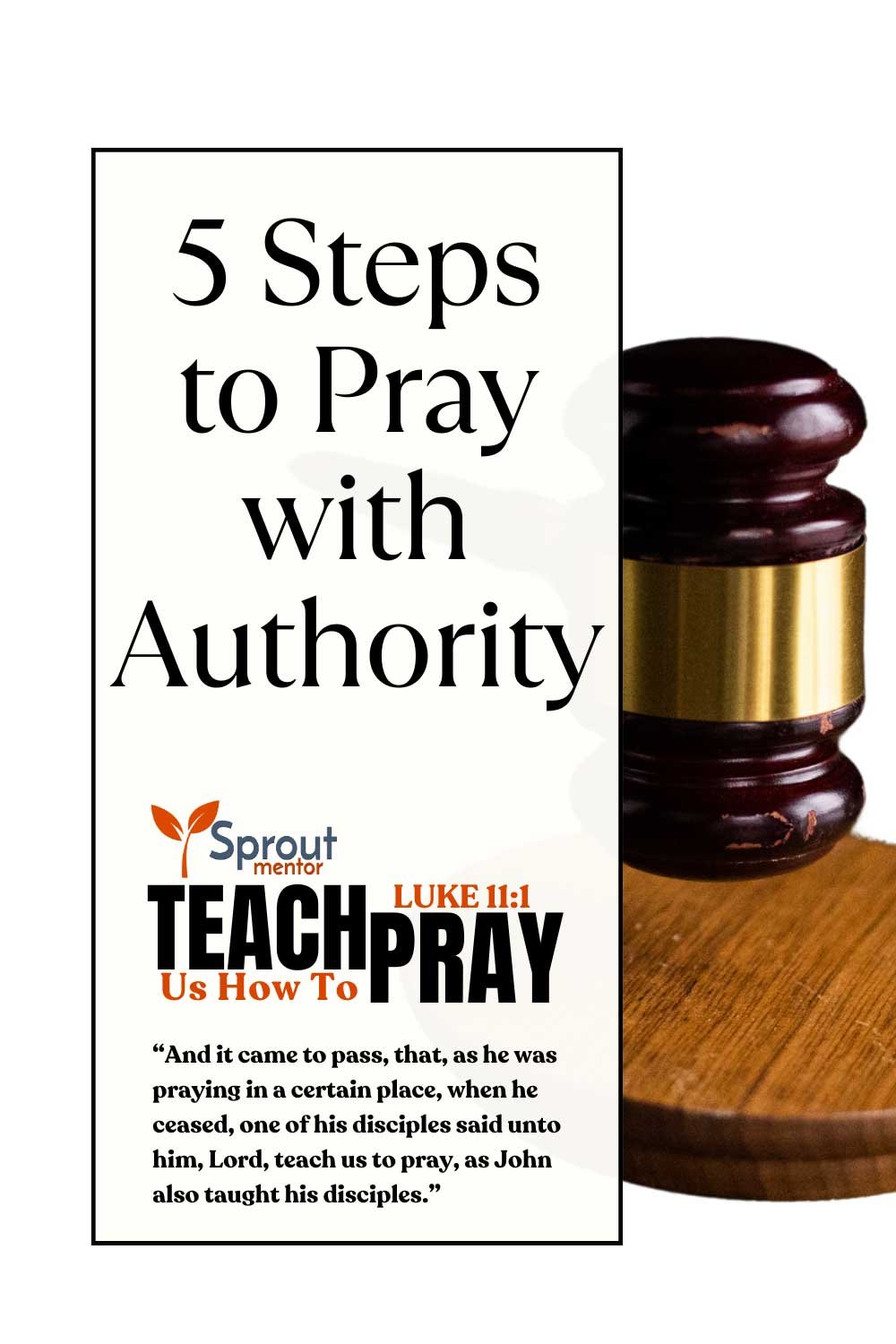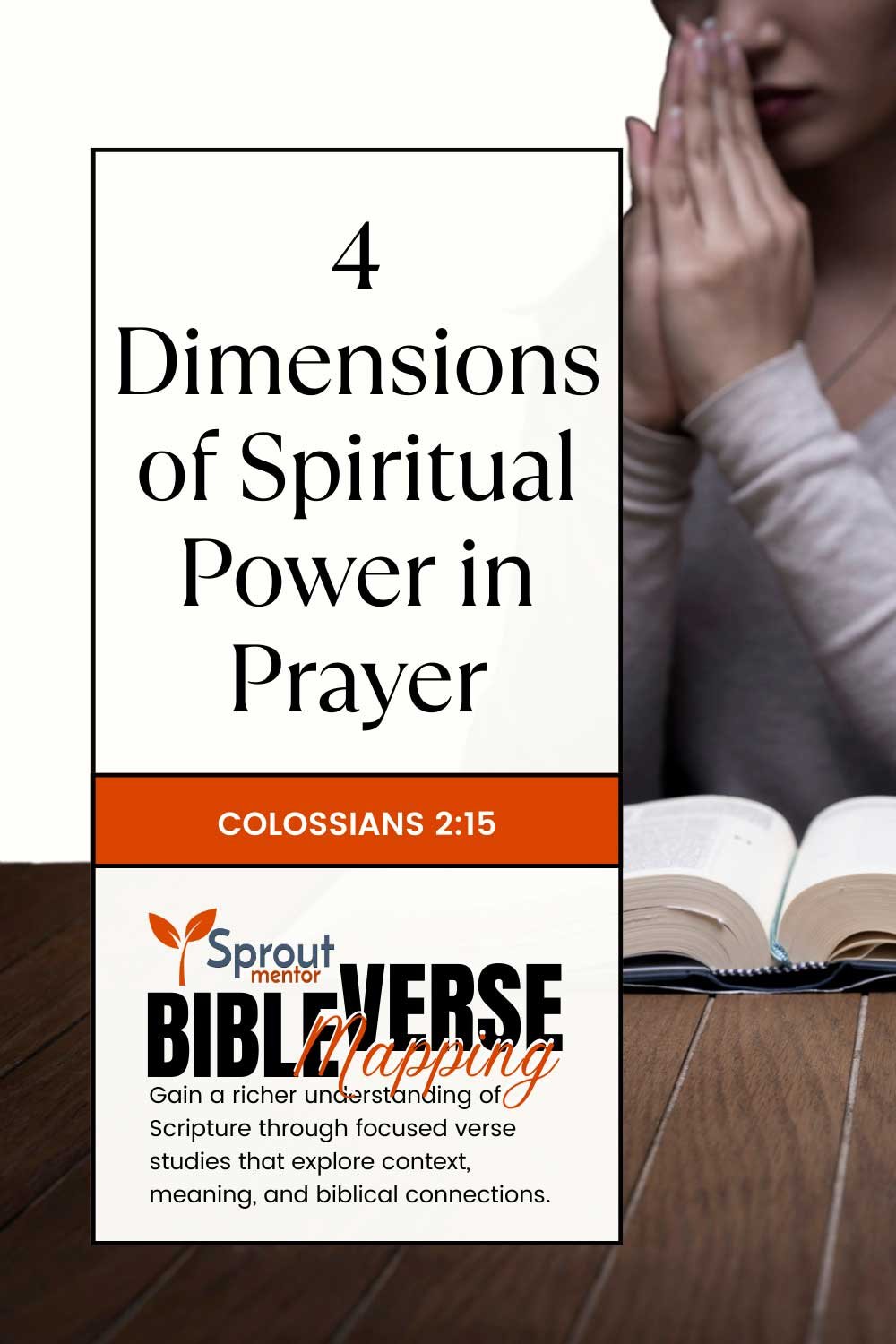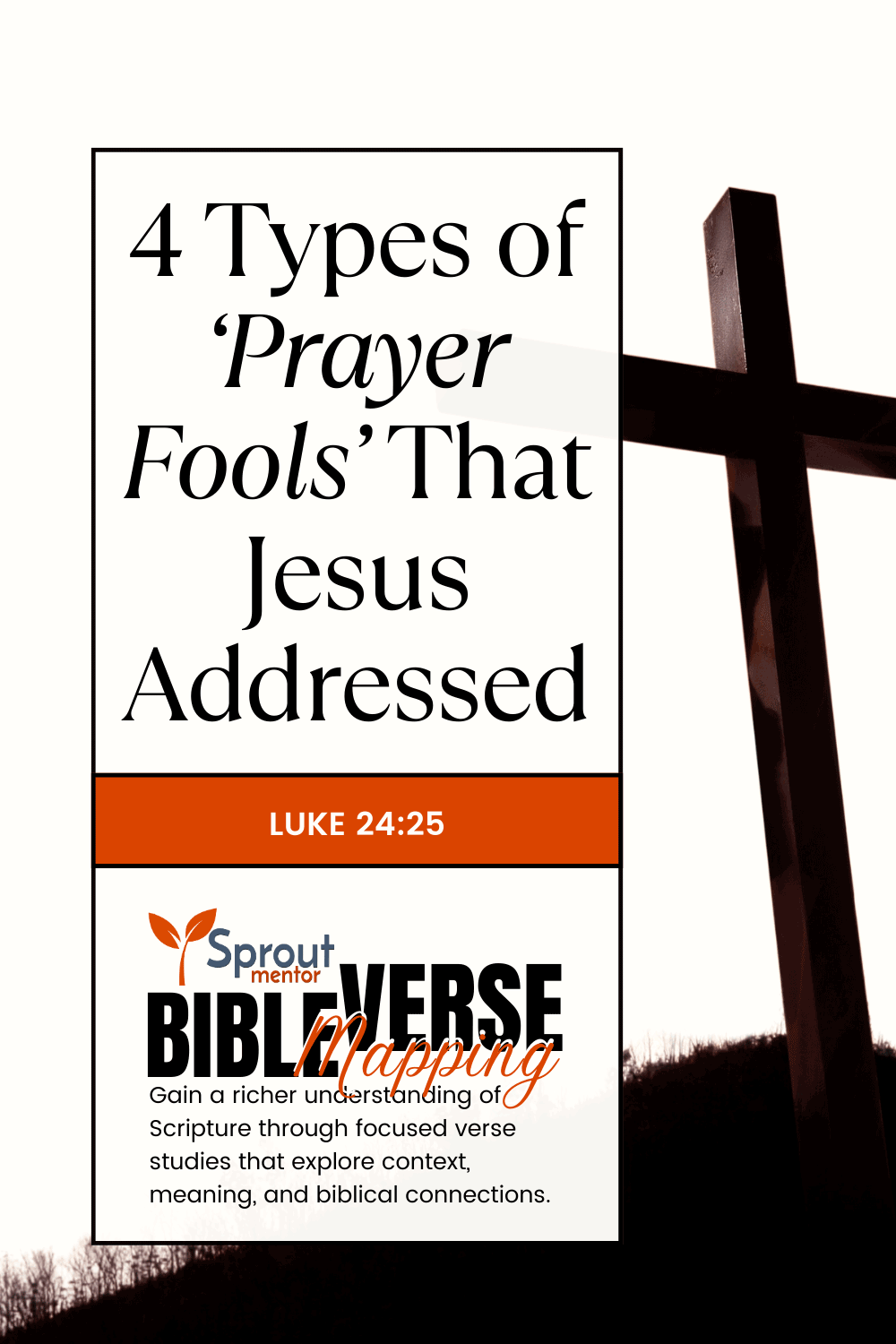5 Steps to Pray with Authority

Share This Blog Post On:
Short on time, but big on faith? We break down complex topics into easy-to-understand chunks, making the Bible accessible to everyone. Join us for answers to your Bible questions and encouragement for your daily walk with God. Click here to grow your faith, one byte at a time!
Prayer is more than just communication with God; it is a divine instrument that enables believers to execute the will of God on Earth. Many Christians struggle in their prayer life because they lack an understanding of the authority they have been given. Jesus taught His disciples not only to pray but to pray with authority. Authority in prayer means standing in the power of Christ, enforcing God’s will, and overcoming spiritual opposition. Without this authority, our prayers can be weak and ineffective. In this post, we will explore five critical steps to praying with authority.
Related Posts:
- The Power of Authoritative Prayers
- 10 Prayers for Power and Authority in Ministry
- Why You Need Power and Authority Before Starting a Ministry
- How To Have Authority Over Evil Altars
- Prayers To Enforce Your Christ-Given Authority
- How To Have Authority Over Territories
- 5 Levels of Authority That Every Believer Should Have

Step One: Understand Why Authority Is Important in the Spirit Realm
Authority is a divine covering that ensures that when a believer speaks, it is not merely their voice but God’s command being enforced. When God invests His authority in a believer, it means they operate as His representatives on Earth (2 Corinthians 5:20). A person with divine authority does not act on their own but is backed by the power of God Himself.
In the spiritual realm, every spirit operates within a designated dimension. For a spirit to manifest on Earth, a human must create an environment that mirrors its spiritual realm – This is what is called The Science of Altars. This principle explains why places of demonic worship, such as shrines, and places of divine encounters, such as the temple in the Old Testament, exist. For example, Zechariah encountered an angel in the temple (Luke 1:11), showing that divine encounters happen in spaces consecrated for God’s presence.
For example, the children of Israel experienced divine protection through their camping arrangement, which God ordained in Numbers 2. This arrangement mirrored His heavenly order, ensuring that they were under divine cover. As a result, God’s protection was so strong that Balaam, a false prophet hired to curse them, declared, “No enchantment against Jacob, neither any divination against Israel” (Numbers 23:23). Likewise, believers today receive divine coverings at three levels:
- The seal of the Holy Spirit at salvation (Ephesians 1:13-14).
- Their life is hidden in Christ as they walk in obedience (Colossians 3:3).
- Their life is hidden in God with Christ when they grow in spiritual maturity (Colossians 3:3).
- A believer fully covered by God’s authority cannot be easily overcome by the enemy.
Step Two: Know the Difference Between Power and Authority
Power and authority are distinct but interconnected. Power refers to the ability to do something, while authority is the right to do it. That means power answers the question: Can it be done? (ability), While authority answers the question: Should it be done? (authorization, legitimacy, and license). As a result, a person may have power but lack the authority to exercise it. For example, in Mark 11:27-28, the religious leaders questioned Jesus: “By what authority do you do these things?” This shows that even those opposed to God understand that authority determines legitimacy.
Luke 10:20 provides another example. The seventy disciples rejoiced that demons obeyed them, but Jesus redirected their joy to the fact that their names were written in heaven. This suggests that authority in prayer comes from a recognized identity in the spiritual realm. This is why the sons of Sceva in Acts 19:13-16 failed when they tried to cast out demons in Jesus’ name. The demons recognized Jesus and had heard of Paul, but the sons of Sceva had no spiritual authority, leading to their humiliation because they were spiritual vagabonds.
To pray effectively, a believer must possess both power and authority. Power comes from the Holy Spirit (Acts 1:8), but authority comes from being under divine covering and walking in obedience.
Step Three: Know the Role of Intimacy in Securing God-Given Authority
God does not entrust His authority to strangers. Only those who have a deep, intimate relationship with Him are given the right to wield His power. This principle is evident in Mark 3:14, where Jesus first appointed His disciples “that they should be with Him” before sending them out. Intimacy with God precedes commissioning as supported in other biblical examples such as:
- Luke 9:1 – Jesus gave His disciples power and authority before sending them. These were disciples that had followed Him throughout His earthly ministry and now He was promoting them to be the sent ones or apostles.
- Matthew 7:21-23 – Jesus condemned those who performed miracles without knowing Him personally. The Greek word for “know” in this passage refers to deep intimacy, much like the relationship between a husband and wife.
- Acts 13:1-5 – Paul and Barnabas were sent only after the Holy Spirit endorsed them, showing that sending requires divine approval. That means the two had fellowship with the Holy Spirit such He could endorse them for the missionary work.
Jesus Himself demonstrated this principle. Before His three years of ministry, He spent thirty years living in obedience and submission to God. True spiritual authority requires a life of submission to God’s will. Before we can carry God’s authority we must tarry in His presence just like what the Psalmist called dwelling in the shadow of the Most High (Psalms 91:1-3). Dwelling is not a periodic one-time appearance but a continued existence like the apostles purposed to ‘continue steadfastly day after day in the four apostolic agendas in Acts 2:42.
Read More:
Step Four: The Difference Between Zeal and Authority
Many believers mistake zeal for authority. While passion for God is good, it does not replace divine authorization. In Acts 15, two groups of people emerged: The first, was those who were sent (Acts 15:22-23) – These individuals were recognized by the apostles and sent with proper authority. The second, those who went (Acts 15:24) – This group took it upon themselves to preach without divine backing, causing confusion and error. When a person moves in zeal without authority, they may cause more harm than good as explained in step five below. The Lord’s work must be done under His guidance.
Step Five: Know How to Discern When Authority Is at Work
A believer operating under divine authority is known both in heaven and in the kingdom of darkness. Satan does not fear those who merely know Scripture but those who are backed by divine authority. A key indicator of true authority is the presence of supernatural results. For instance:
- Acts 10:38 – Jesus healed the sick and cast out demons because “God was with Him.”
- Luke 4:18 – Jesus’ ministry was marked by the anointing to set captives free.
- Matthew 10:8 – Jesus instructed His disciples to heal the sick, cleanse lepers, raise the dead, and cast out demons.
- Isaiah 10:27 – The anointing destroys yokes.
When authority is at work, it leads to transformation. If we go back to step four of the example of those that were sent (Acts 15:22-23) and those that went without authority (Acts 15:24) we see two sets of results. In Acts 11:26, because of the sent ones, the disciples in Antioch were so changed that they were first called Christians. On the other hand, in Acts 15:24 the believers were left enslaved in false doctrines and more strongholds of the enemy at the ministry of those that went since it was all words without power and authority. The kingdom of darkness recognizes and respects those who walk in God-given authority.
Conclusion
Authority in prayer is not automatic; it is cultivated through submission, obedience, and intimacy with God. To pray with authority, a believer must understand the spiritual realm, recognize the distinction between power and authority, develop a close relationship with God, wait for divine commissioning, and discern when true authority is at work.
As we grow in our walk with Christ, our authority in prayer increases. Jesus has given us the power and authority to trample on serpents and scorpions (Luke 10:19), but it is our responsibility to remain under His covering, walk in obedience, and align our will with His. When we do this, our prayers will not only be heard but will have the power to transform lives, destroy the works of the enemy, and establish God’s kingdom on Earth. Let us strive to be believers who are not just zealous but authorized, not just powerful but divinely appointed, so that when we pray, heaven moves and the enemy trembles. Amen.
PRAY THIS PRAYER OF COMMITMENT:
- “God I repent for areas where I was so impatient that I went on mission or ministry without you sending me out with your authority and power. Father, if I am such kind, God grant me the grace for alignment to go back to the place where I can be an authorized minister. I want to be part of that end-time army that you will equip with power and authority to do damage to the kingdom of darkness. I want to be numbered among you sent ones endorsed by your spirit and licensed to represent you.”
Continue Reading More On Spiritual Warfare In The Guides Below:
|







